After one year of implementing the “Developing Palliative Care Services in Lao PDR” project, the Karunruk Palliative Care Center (KPC) at Srinagarind Hospital, Faculty of Medicine, Khon Kaen University, collaborated with the Asia Pacific Hospice Palliative Care Network (APHN) and the Department of Healthcare and Rehabilitation (DHR) of the Ministry of Health Lao PDR. The project initially focused on major hospitals and the national cancer center in Vientiane, the capital city of Laos. The second-year plan aims to extend palliative care knowledge and services nationwide.
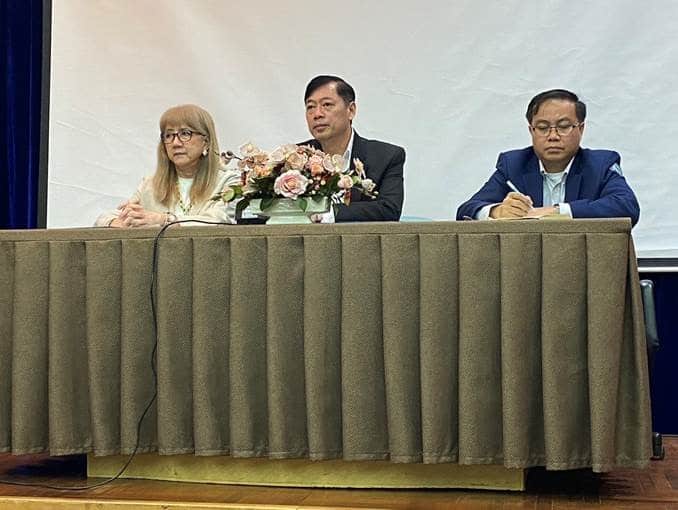
The first workshop of this year on symptom management was held at Setthathirath Hospital, Vientiane, Lao PDR, from June 10-11, 2024, conducted by Dr. Srivieng Pairojkul, Dr. Attakorn Raksasataya, and Ms. Natchaya Baulakorn from KPC. This event brought together 75 Laotian healthcare professionals from the capital city and seven provincial hospitals, including doctors, cardiologists, pulmonologists, intensivists, nephrologists, nurses, and palliative care specialists, to discuss best practices in palliative care. The conference focused on identifying patients in need of palliative care, creating effective care plans, and managing symptoms to improve the quality of life for patients and their families.
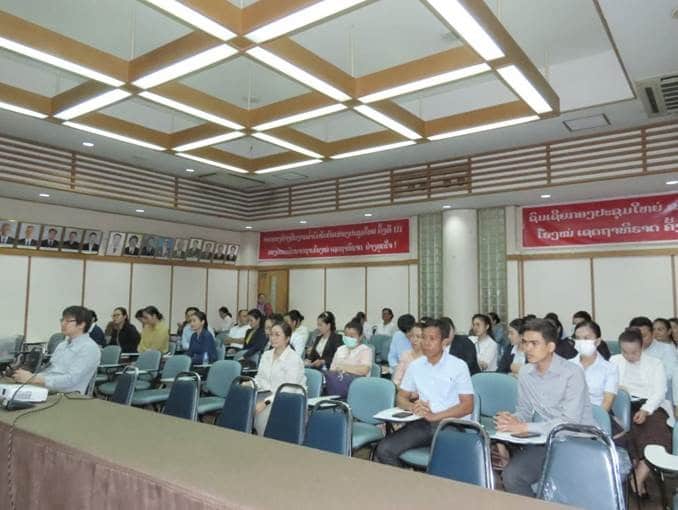
Identifying Patients in Need of Palliative Care
A key session addressed how to identify individuals who require palliative care. Experts discussed the use of clinical indicators and assessment tools to recognize patients at different stages of serious illness. Emphasis was placed on early identification through regular screening and comprehensive evaluations, including multilevel palliative care: primary, secondary, and specialist palliative care. The session underscored the importance of multidisciplinary teamwork in assessing patients’ physical, emotional, social, and spiritual needs to determine the appropriateness of palliative care interventions.
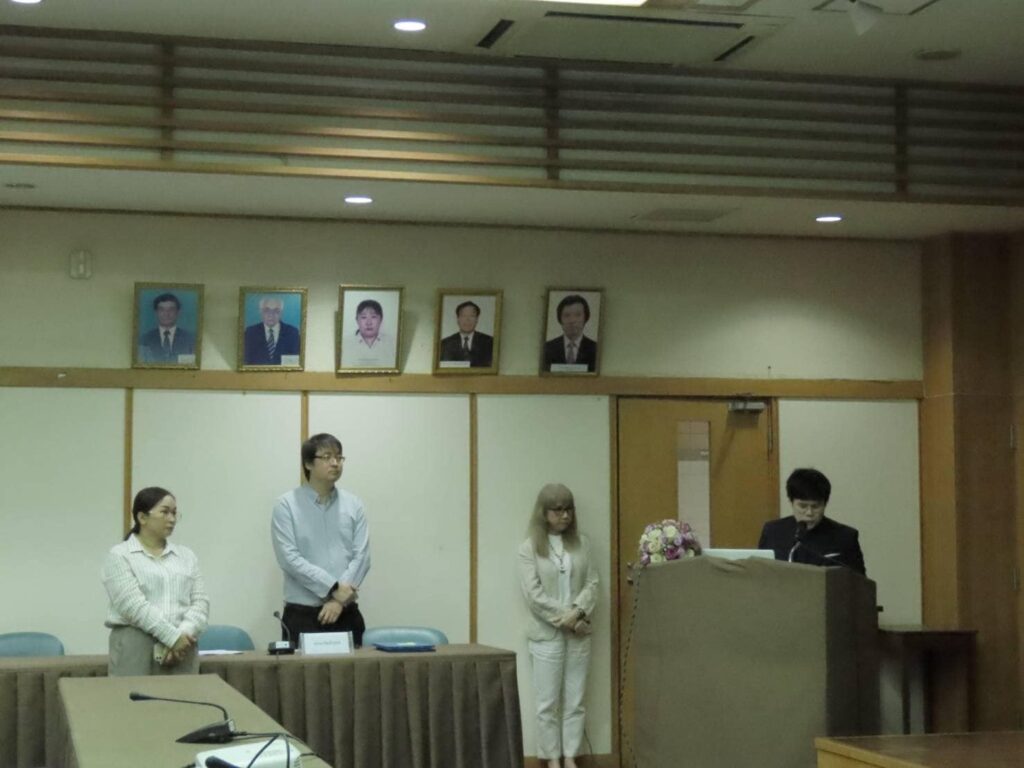
Case Exercise: Generating Care Plans
Participants engaged in a hands-on case exercise focused on generating care plans for palliative patients. Working in small groups, attendees were given detailed patient scenarios and tasked with developing comprehensive care plans. Each group then presented their plans, which included symptom management strategies, psychosocial support, and coordination of care among healthcare providers. This exercise highlighted the importance of collaborative planning and personalized care tailored to each patient’s unique needs.
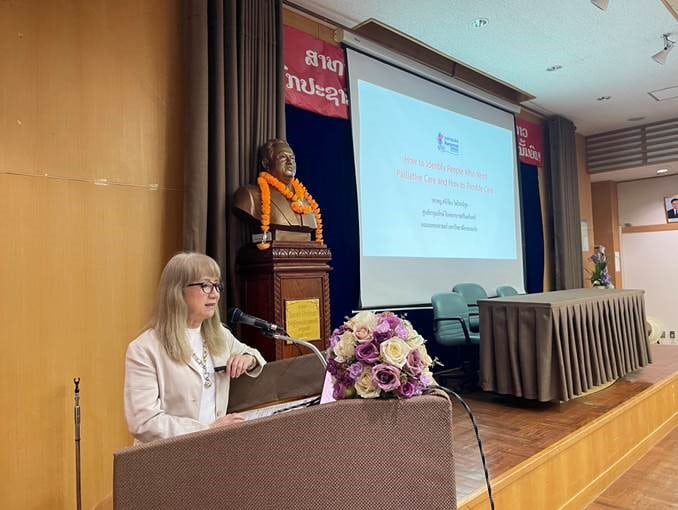
Lecture: Symptom Management in Palliative Care
One of the cornerstone lectures was on symptom management in palliative care. The topic covered a range of symptoms commonly encountered in palliative care, such as pain, nausea, dyspnea, and anxiety. The lecture discussed evidence-based approaches for managing these symptoms, emphasizing the importance of patient-centered care and regular symptom reassessment. Valuable insights were provided into pharmacological and non-pharmacological interventions to alleviate patient discomfort.
Symptom Management Case Exercise
Following the lecture, attendees participated in another group exercise focusing on symptom management. Each group was given a complex case involving multiple symptoms and tasked with creating a management plan. The exercise fostered deep discussions about treatment options, potential side effects, and the importance of holistic care. Presentations of the group findings allowed participants to learn from each other’s approaches and solutions, fostering a collaborative learning environment.
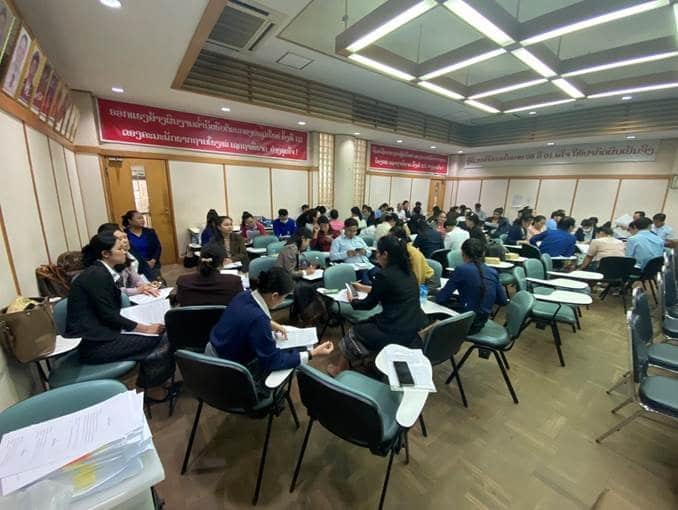
Teaching Rounds: Two Case Studies
The conference featured teaching rounds on the second day, where two cancer cases were presented and discussed in depth. These sessions provided a practical perspective on applying theoretical knowledge to actual patient care. The cases included detailed histories, current management strategies, and challenges faced by the healthcare team. Participants had the opportunity to ask questions and discuss alternative approaches, gaining valuable insights into the complexities of palliative care.
The workshop was a valuable forum for learning and collaboration among palliative care professionals. Through lectures, hands-on exercises, and case discussions, attendees enhanced their skills in identifying patients who need palliative care, developing individualized care plans, and managing complex symptoms. The conference emphasized the importance of a holistic, patient-centered approach to palliative care, underscoring the need for ongoing education and multidisciplinary collaboration. Participants left with a renewed commitment to improving the quality of life for patients facing serious illnesses, equipped with new strategies and knowledge to implement in their practice.
Photos and Written by: Dr Attakorn Raksasataya, Palliative Care Physician, Karunruk Palliative Care Center (KPC)
